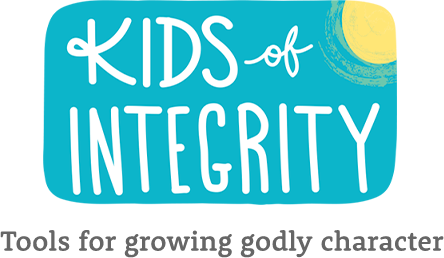Kindness

Bible stories
This section provides Bible stories with the theme of kindness, along with questions you can use as a guide for family discussions. Choose one story that is appropriate for your children. Before reading aloud, take a few minutes to review the story. If the Bible passage is too complex for your children, paraphrase the story yourself or use the summary provided under “key concepts.”
Acts of kindness
Read Luke 5:17-26 and Matthew 6:1-4.
Questions for discussion
- Who brought the paralyzed man to see Jesus?
- Have you ever done something kind for a friend?
- Have you ever shared something with someone who needed it more than you?
- Why did Jesus heal the paralyzed man? To bring praise to Himself or to honour God?
- When you do kind things, who deserves the praise for your kindness?
Key concepts
Four friends brought their paralyzed friend to see Jesus so he could be healed. Jesus healed the man to bring praise to God, not Himself. When we are kind, we should do it to honour God, not ourselves. For example, let’s say you give some food to the food bank. God wouldn’t want us to brag about our generosity. However, if someone did find out about it and said how kind you were, you could give honour to God by saying, “God has blessed my family with lots of food, and we wanted to share some of it with another family.”
Love your enemies
Read Luke 6:27-36 and 1 John 3:16-18.
Questions for discussion
- Is it easy to be kind? If so, when?
- When are you tempted to be unkind?
- Who does Jesus say we are to be kind to?
- Who can help us show love to those who are unkind to us?
- How did Jesus show He loves us?
- How can we show love to others?
- Do you know anyone who needs something that you have?
Key concepts
Jesus talked about a common saying, “Love your neighbour and hate your enemy.” He said that He didn’t agree. Instead, Jesus encouraged His followers to love their enemies and pray for those who were unkind to them. The Bible says that Jesus showed His love for us by “laying down his life”’ (dying on the cross for our sins). 1 John 3:16-18 also tells us that the best way to show we have God’s love in our hearts is to share what we have with those who need it.
David, Abigail and Nabal
Read 1 Samuel 25:2-42 and Psalm 94:1-2.
Questions for discussion
- Have you ever been kind to someone and they were mean in return?
- How did that make you feel?
- In this story, what did David do that was kind to Nabal?
- What did Nabal do when David asked him for a favour?
- What was David going to do?
- What did Abigail do?
- What did David say to Abigail?
- When someone is unkind to us, what are we to do?
- What did David say about God in Psalm 94:1-2?
- Do you always make the right choices?
Key concepts
David and his men had been very kind to Nabal’s men, but when David asked Nabal for a favour, he refused to return David’s kindness. This made David angry, and he was going to fight Nabal. Fortunately, Nabal’s wife Abigail became aware of the situation and went to ask David to forgive her husband for his unkindness. Although David knew that it was wrong to take revenge, he was still planning to do so. In the end, David thanked Abigail for preventing him from fighting Nabal.
When we are tempted to pay someone back for their unkindness to us, we need to remember David and Nabal. God eventually did repay Nabal for his wrongdoing. It is not our job to repay someone for his or her actions; it’s God’s. We need to focus on instructions we read in Proverbs 20:22: “Do not say, ‘I’ll pay you back for this wrong!’ Wait for the Lord, and He will deliver you.”
Cool kids are kind
Read Luke 10:25-37.
Note: If your children have heard this story many times, you may want to tell a modern-day version alongside the Biblical account. For example, the story can be set in a schoolyard or playground situation where a child has been beaten up. Different kids who know the injured child ride by on their bikes and go by on the other side of the street, fearing that they may get beaten up, too. Finally, a kid comes along from another neighbourhood who doesn’t even know the hurt kid. He stops to help and takes him to a house and offers to pay for the bandages. After telling the modern version, ask your children to explain how your modern-day version paralleled the Bible story of the Good Samaritan.
Questions for discussion
- How do you feel when you see someone else is hurt?
- What do you do?
- Why did the Levite or priest (or neighbourhood children, in the case of the modern-day story) not stop to help the injured person?
- Who did stop and why do you think they decided to help?
- What would Jesus have done?
- Can you think of a time when you might be tempted to avoid helping someone?
- If a mean kid got hurt, would you laugh and think, “Serves him right!” or would you offer to help?
- Can you think of anyone in your neighbourhood who needs your help?
Key concepts
Jesus told this story to help people understand that it is important to show love to everyone. If we only show compassion to some people, we are not truly sharing God’s love with others. The Samaritan in the story showed love to the injured man because he had pity on him and cared for him. The Levite and the priest, although they were considered to be spiritual leaders, did not show God’s love to the injured man. Jesus ended the story by saying, “Go and do likewise.” We show true compassion and kindness when we go out of our way to help someone else. Jesus expects us to share His love and kindness with people we don’t even know.
God’s kindness
Read Acts 14:17, Ephesians 2:7 and Titus 3:4-7.
Questions for discussion
- Do you think God is kind?
- How can you know that He is?
- How does God show us kindness?
- When someone is kind to you, do you tell other people about their kindness?
- How can you tell someone else about how God is kind to you?
Key concepts
God shows us kindness by caring for us. He sends us rain to help farmers grow crops to feed us. He provides food for us and fills our hearts with joy! He also showed us His love by sending His Son Jesus to die on the cross to take the punishment for our sins.
When we are kind to others, it is a good way to share God’s love with them. We should also be prepared to tell others how God shows His kindness to us. For example, it may be a rainy day and you may feel like complaining. Instead of whining about the weather, we should thank God for the rain and be happy because it reminds us that God is showing us kindness.
David’s kindness
Read 2 Samuel 9.
Prior to reading this story, give a brief history of who Jonathan was and the friendship between David and Jonathan:
Saul was the King of Israel. Unfortunately, Saul was not a king who pleased God, so God chose to give the honour of being the king to another person (1 Samuel 15). The one God chose to be the next king was David, a young man who worked for King Saul.
David spent a lot time in the palace and became very good friends with Saul’s son, Jonathan. After some time, King Saul became so jealous of David that he wanted to kill him. Even so, Jonathan remained David’s best friend. Jonathan even gave up his position as the next kind of Israel for David, and he risked his life to defend David. Jonathan died in battle before David was made king of Israel.
Questions for discussion
- Who was Mephibosheth?
- Who was David?
- Who do you think ate at the king’s table?
- What do you think it would be like to eat at the king’s house?
- How did David show God’s kindness to Mephibosheth?
- How can you be kind to those who are less fortunate than we are?
Key concepts
David wanted to show kindness to the family members of his friend Jonathan. He did this by returning property and honour to one of Jonathan’s remaining relatives. David honoured him by having him eat with him at his own table.
Jesus is kind to children
Read Mark 10:13-16.
Questions for discussion
- What does it mean to hurt someone’s feelings?
- How do people hurt your feelings?
- Did the disciples consider the feelings of the little children?
- What did Jesus do for the children?
- How can we bless other people?
- How can we show others that we think they are valuable?
Key concepts
Ignoring others, leaving them out or telling them to go away is unkind and will likely hurt their feelings. We can be a blessing to others by treating them as though they are valuable. This is what Jesus did when the parents brought their children to Him.
- Acceptance
- Adaptability
- Attentiveness
- Christmas
- Compassion
- Confidence
- Consideration
- Contentedness
- Cooperation
- Courage
- Courtesy
- Discernment
- Easter
- Faithfulness
- Forgiveness
- Generosity
- Gentleness
- Gratitude
- Harmony
- Honesty
- Humility
- Joy
- Kindness
- Obedience
- Patience
- Perseverance
- Respect
- Responsibility
- Reverence
- Righteousness
- Self-control
- Thanksgiving

